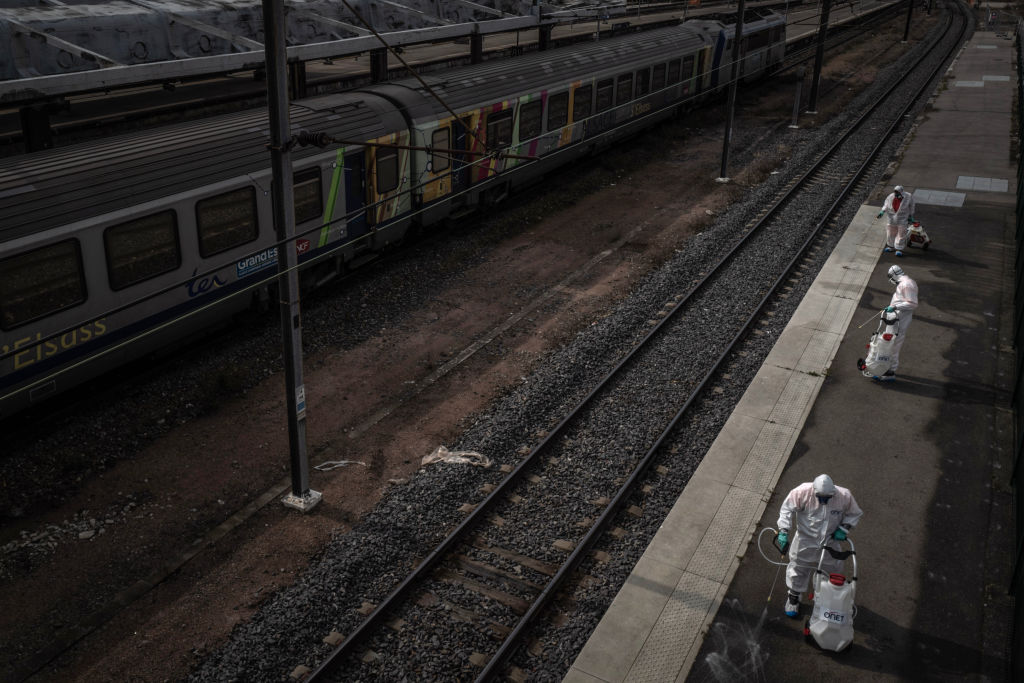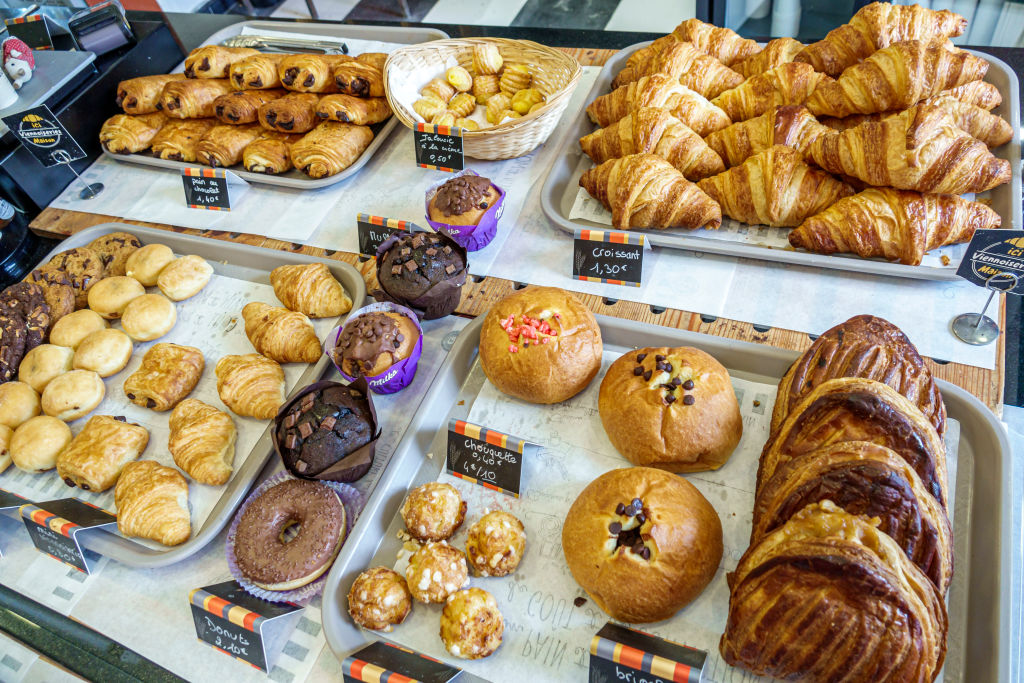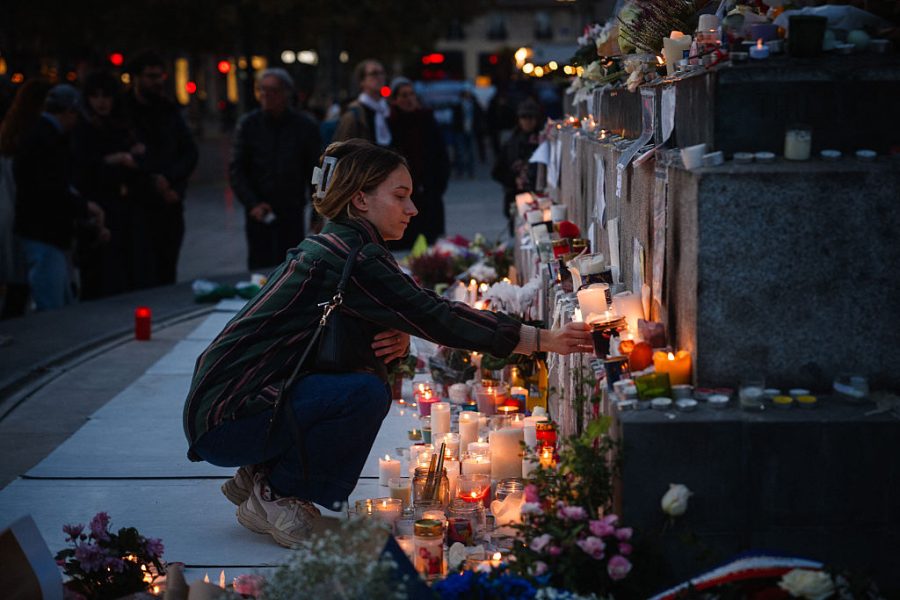As France prepares to enter its third week of confinement the prime minister, Edouard Philippe, has warned that ‘the fight has only just begun’. Coronavirus has claimed 2,606 French lives to date, but at a press conference on Saturday evening Philippe said: ‘The first 15 days of April will be even more difficult than the last 15 days.’
Earlier in the week Philippe had praised the resolve of the vast majority for respecting the lockdown, and he urged France to hold the course while announcing that the confinement will continue until at least April 15. ‘This struggle will last,’ he said. ‘We will only win by being disciplined and observing lockdown measures.’
But how long can the French hold out? In Italy there are reports that some people are close to breaking point after three weeks of house arrest. Coronavirus has not swept through France with anywhere near the same lethality as it has in Spain and Italy, and healthy young people are likely to start challenging the legitimacy of their confinement, especially when the vast majority of the victims in France are over the age of 65.
Beneath Philippe’s combative demeanor at Saturday’s press conference there must be apprehension as to whether the country will continue to obey his government’s draconian measures.
The school term officially ends this Friday and psychologically this will test the resolve of the country. Children will no longer be occupied with schoolwork and their parents will surely find it harder to keep them entertained; millions should have been setting off on holiday to the seaside or the countryside but instead they are prisoners in their own home.
If the weather forecasters are right then the southern half of France will be bathed in warm sunshine this weekend, making the captivity all the more torturous for youngsters who would love to be flirting on the beach or kicking a ball about in a park.
You can’t help but wonder if, in a country as patriarchal and hierarchical as France, the young are being sacrificed for the sake of the self-entitled ’68’ generation. President Macron may not be one of them but he knows how key they are electorally. In the 2017 presidential run-off with Marine Le Pen, 78 pe cent of over-70s voted for him, while his rival did best among the 25-49 demographic, which, incidentally, forms the nucleus of the Yellow Vest movement. Similarly, in last year’s European Elections Macron’s ruling LREM party scored highest among the over-65s, 30 percent of whom gave the president their vote.
With this demographic most at risk from coronavirus it makes sense for Macron to prioritize their needs, and his concern for their welfare is appreciated. This weekend a poll revealed that Macron’s approval rating among the over 65s has rocketed by 17 percent in the last month. In total 44 percent of French people polled have confidence in their government’s ability to handle the coronavirus crisis; the most skeptical were Le Pen’s supporters (22 percent confidence) and those loyal to the far-Left France Insoumise (29 percent), both of which have a strong youth following.
There’s another factor to consider, however, in why the elderly in France are more likely to have faith in their president. The 68 generation may have briefly rebelled half a century ago but they soon matured and took their place in the chain of deferential command. To give one example: they became so trusting of authority that after the Chernobyl disaster of 1986, millions believed François Mitterrand’s promise that the country had nothing to fear because an anti-cyclonic weather system would keep France safe from radiation.
The end of compulsory military service for all male school-leavers in 1997 is one reason this deference diminished among the under-40s. That same year the internet began to make its mark in France, exposing impressionable minds to new ideas and new cultures and consequently broadening their minds and horizons.
At the height of the Yellow Vest movement, comparisons were made in some foreign newspapers to the protests of 68, but they had nothing in common. The 68ers were predominantly middle-class students who had spent too much time reading Mao’s little red book. The Yellow Vest demonstrators — during the early days, as opposed to the far-left activists who hijacked the movement in 2019 — were working-class men and women struggling to make ends meet in the face of government indifference.
The Yellow Vests will be hit hardest when France inevitably enters recession later this year; many of the over 65s, on the other hand, will be cushioned from too much hardship by their generous pensions. France spends around 14 percent of its GDP on pensions, more than almost any other EU country.
Facts like these will fester among millions of younger French men and women as they sit in their small apartments day after day stewing. Edouard Philippe’s warning about the next 15 days being difficult will fall on deaf ears — it’s the next 15 years they are worried about.
This article was originally published onThe Spectator’s UK website.

























